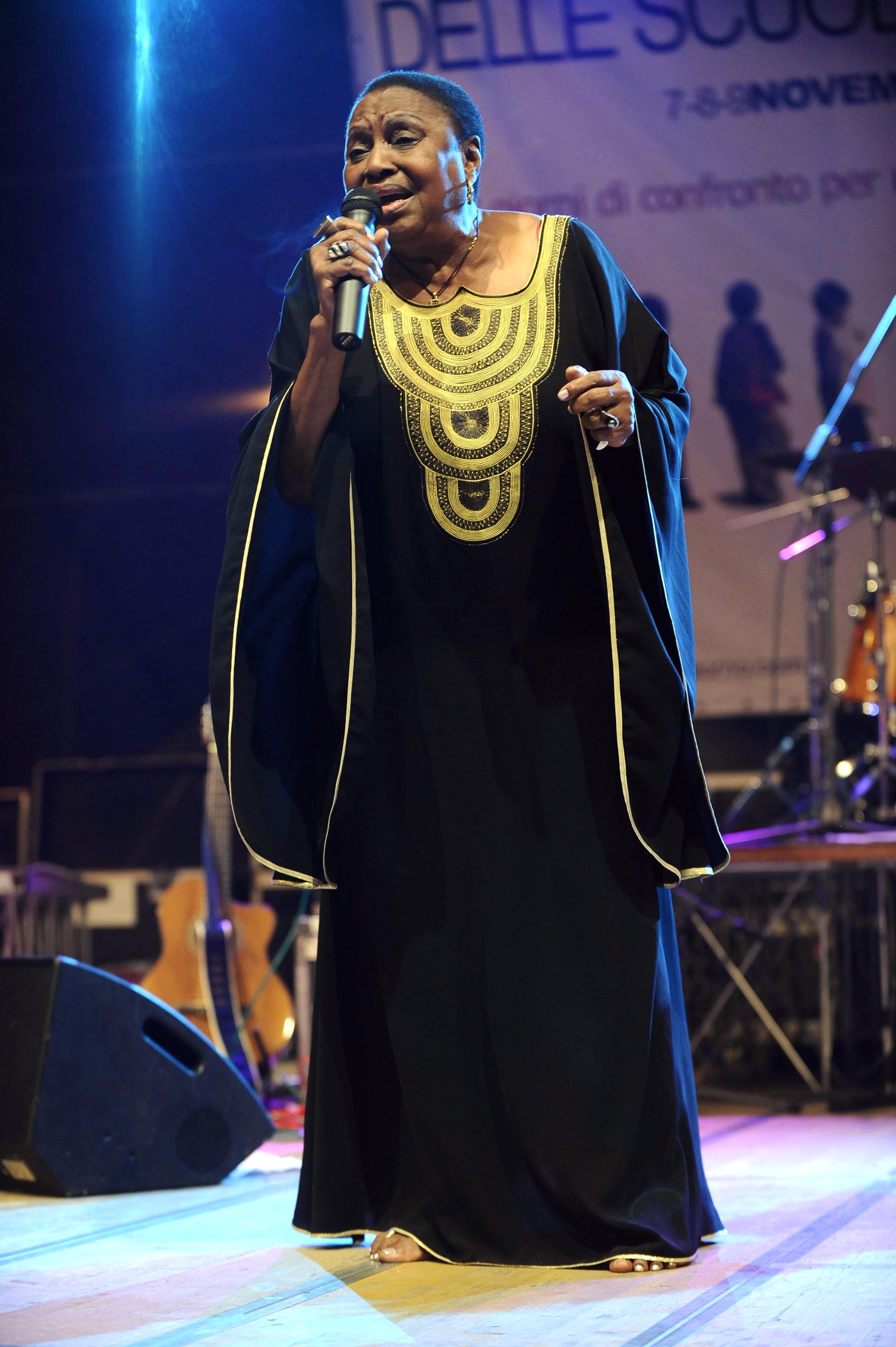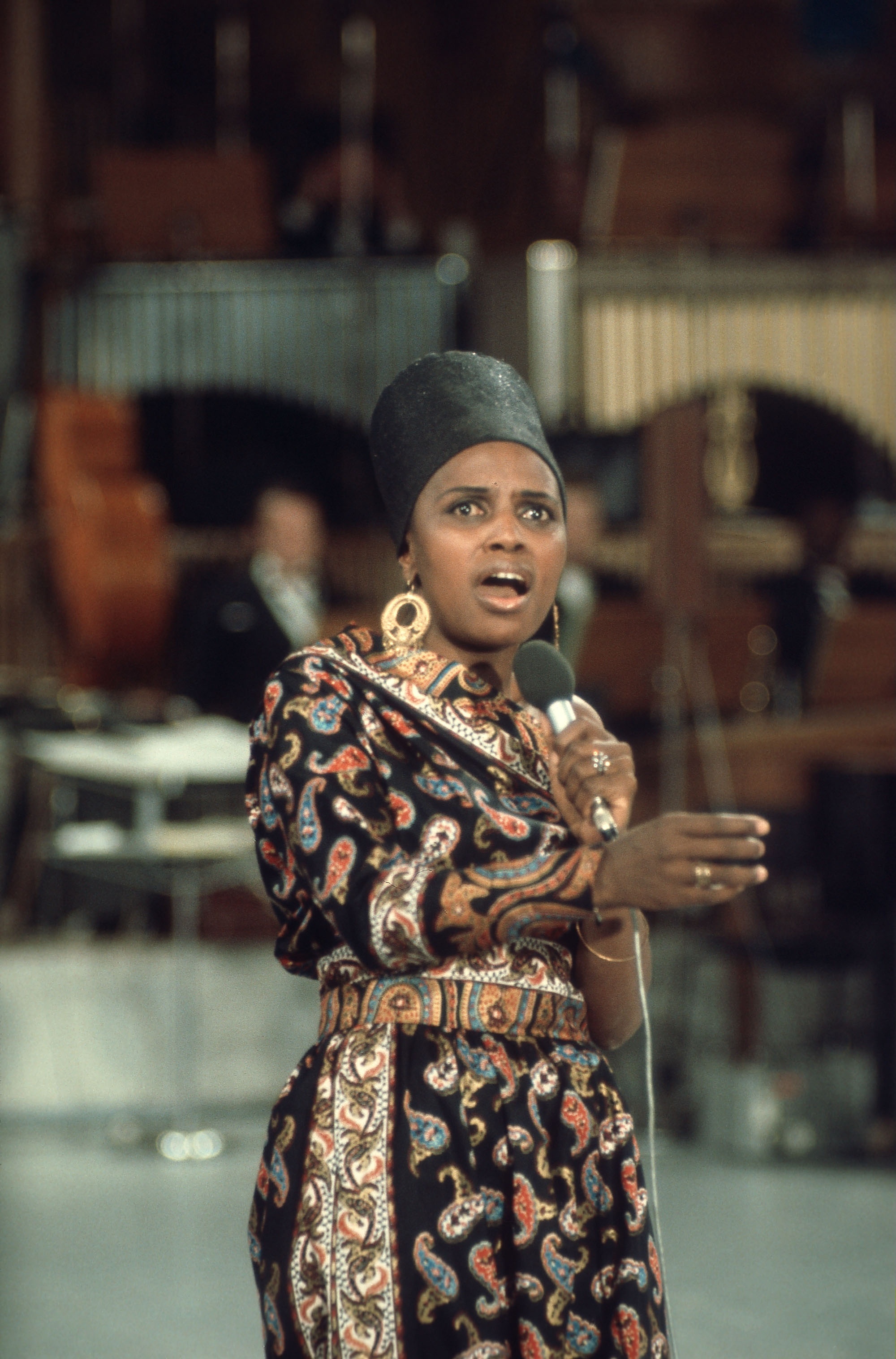Makeba, << mah KAYB ah, >> Miriam (1932-2008), was a South African singer and a strong supporter of civil rights. She gained international popularity for performing songs that skillfully blended traditional South African music with jazz and blues. She also won worldwide admiration for her outspoken stand against apartheid. Apartheid was the strict system of racial segregation established by South Africa’s former white minority government. This policy was in place from 1948 to the early 1990’s. Because of her opposition to apartheid, Makeba was widely known as “Mama Africa.”

Zenzi Miriam Makeba was born on March 4, 1932, in Prospect, a segregated shantytown outside Johannesburg. Her father was a member of the Xhosa group, and her mother was a Swazi. As a child, Makeba sang in the choir of her school, the Kilmerton Training Institute in Pretoria. She started performing professionally about 1950, first with her cousin’s group the Cuban Brothers, then with the Manhattan Brothers, and finally with an all-female group called the Skylarks.
In 1959, Makeba took over the female lead in the stage musical King Kong. This role made her famous throughout South Africa. Also in 1959, she gained international recognition for her appearance in the antiapartheid motion picture Come Back, Africa. The white South African government disapproved of the views Makeba expressed in the film. She traveled outside South Africa from about mid-1959 to early 1960. When Makeba tried to return in 1960, the South African government barred her from reentering the country. It took away her passport and banned her from living in the country.
The American entertainer Harry Belafonte eventually helped Makeba gain admittance into the United States. She recorded many of her hits there during the 1960’s. They included “The Click Song,” “Malaika (My Angel)”, and “Pata Pata.” An Evening with Belafonte/Makeba, an album she recorded with Belafonte, won the 1966 Grammy Award as best folk recording. The album is a collection of songs sung in the African languages Swahili, Sotho, Xhosa (isiXhosa), and Zulu (isiZulu).

Makeba was married to the South African jazz trumpeter Hugh Masekela from 1964 until they divorced in 1966. She married the Trinidad-born American civil rights leader Stokely Carmichael in 1968. They divorced in 1978.
Makeba returned to South Africa in 1990. That year, the South African government began repealing the laws that formed the basis for apartheid. Makeba was invited by Nelson Mandela, an antiapartheid leader who, in 1994, became the first black president of South Africa. Makeba wrote an autobiography, Makeba: My Story (1987). She died on Nov. 9, 2008.
